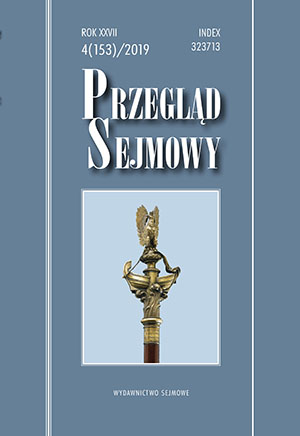Referendum akcesyjne oraz wybory do Parlamentu Europejskiego w Szczecinie na tle Pomorza Zachodniego i Ziemi Lubuskiej w latach 2003–2014. Preferencje wyborcze mieszkańców regionów zachodniopomorskiego i lubuskiego (Piotr Chrobak)
Accession referendum and elections to the European Parliament in Szczecin, against Pomorze Zachodnie (West Pomerania) and Ziemia Lubuska (Land of Lubusz) in the years 2003–2014. Electoral preferences of the residents of Zachodniopomorskie (West Pomer
Author(s): Tomasz SikorskiSubject(s): Politics / Political Sciences, Law, Constitution, Jurisprudence
Published by: Kancelaria Sejmu
Keywords: accession referendum; elections to the European Parliament; electoral preferences; north-western Poland
Summary/Abstract: The reviewed monograph is a political analysis of the EU accession referendum and elections to the European Parliament in the Zachodniopomorskie and Lubuskie voivodeships as well as electoral preferences of the inhabitants of this region. A wide range of sources was used in the research: local press, printed institutional documents, political party programs, election committees, legal acts, internet sources as well as reports and interviews. The author of the reviewed book was interested not only in the course of the referendum campaigns, but also in their preparation, electoral staff work, electoral strategies of individual committees, and finally final results and their analysis. Key conclusions: (1) The inhabitants of Szczecin (including the entire electoral district no. 13) show permanent political preferences during particular elections to the European Parliament. Consistently, solid support is maintained by three parties: PO, PiS and SLD. (2) The electoral committees that support Poland’s membership of the EU enjoy the greatest support in the surveyed region, although it should be noted that the dividing line runs between euroenthusiasts (PO and SLD) and eurorealists (PiS). (3) The election turnout in the next European Parliament elections in the studied area is consistently low and barely exceeds 20%, which proves the residents’ little interest in this type of election, and indirectly in European affairs.
Journal: Przegląd Sejmowy
- Issue Year: 2019
- Issue No: 3
- Page Range: 159-164
- Page Count: 6
- Language: Polish

